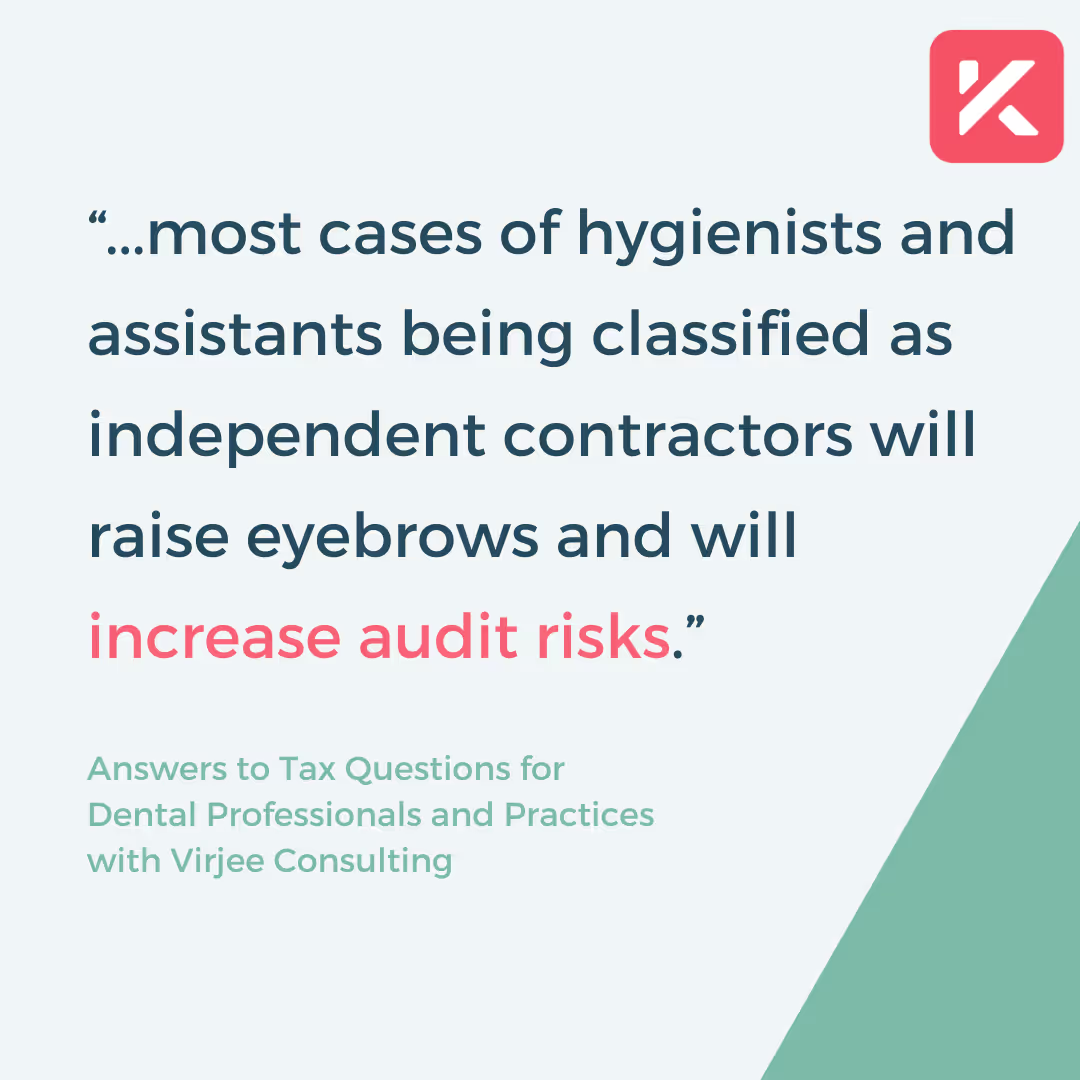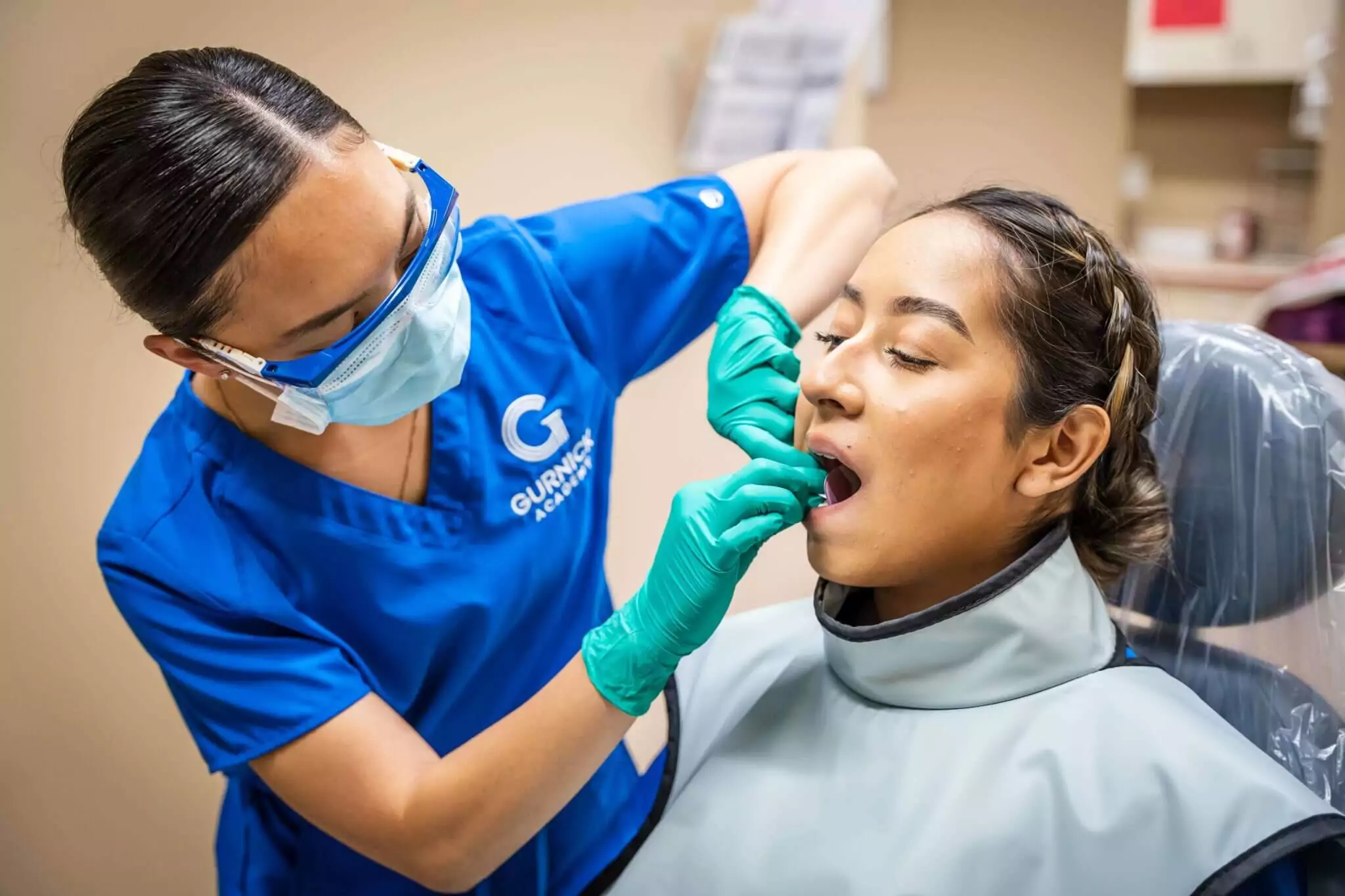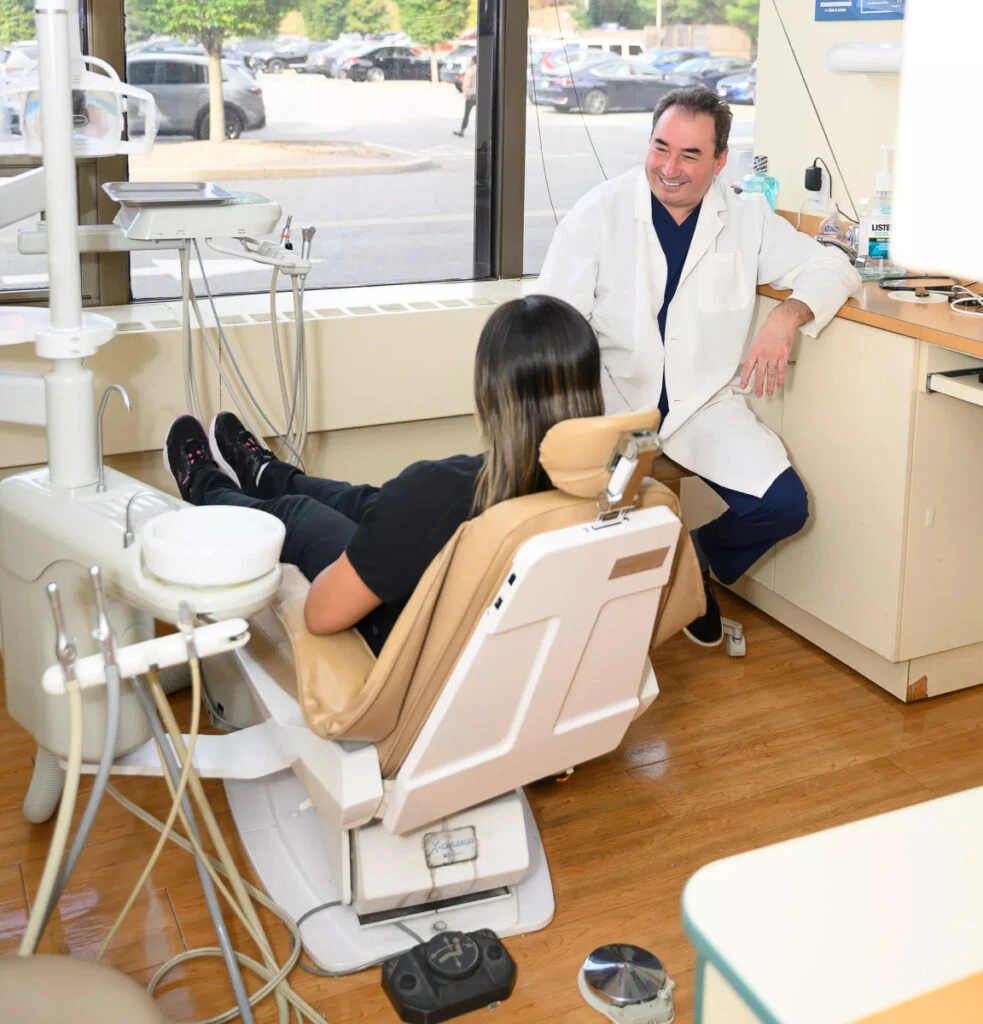Table of contents
Get Started with Kwikly
Get the latest updates, insights, and exclusive content delivered straight to your inbox.
Important Dental Tax Questions From Dental Professionals & Practices in the USA: Answered by Virjee Consulting
Worker classification has big implications at tax time. Dental practices and professionals can’t afford to get it wrong so we asked the accounting experts at Virjee Consulting to answer common dental tax questions.
1. What is the difference between 1099/independent contractor classification and w-2/employee classification?
![“[Independent contractors] should set aside at least 30% of their income for taxes and make a quarterly tax payment to the IRS.”](https://cdn.prod.website-files.com/684844ec4bbcd35cb36bdba9/6858158e4f33432087308cfd_Copy-of-Worker-Misclassificiation.avif)
“W-2 employees have a traditional employer-employee relationship, with taxes withheld by the employer. They can receive benefits like paid time off and unemployment, and they are protected by labor laws.
On the other hand, 1099 workers, or independent contractors, have a contractual relationship and handle their own taxes, pay for their own supplies, liability insurance, and/or CE courses. They lack employee benefits and have flexible work arrangements. Generally, 1099 workers, being independent contractors, are not eligible for traditional unemployment benefits tied to W-2 employment.”
2. If a dental hygienist or assistant is operating as an independent contractor, what must they do to file their taxes? Should they set aside a certain portion of income for tax time?
“They should set aside at least 30% of their income for taxes and make a quarterly tax payment to the IRS via their direct pay website on or before the quarterly tax payment due date.”
3. What should offices know about their obligations or potential risks in classifying temporary hygienists and assistants as independent contractors?
“Our advice has always been to not hire temporary hygienists and assistants as 1099 independent contractors. It’s better to add them as employees on your payroll (even if that means doing the additional paperwork) or use a company like Kwikly that classifies them as W-2 employees.
Offices that hire 1099 contractors would have to gather proper documentation that proves that the worker did not work under the office’s direction, did not have their schedule set by the office, or use the office’s supplies, in case of an IRS or state audit. However, even with that documentation, most offices will fail an audit due to the nature of the work performed.”
4. If an office pays an independent contractor via a third party, is the office still at risk?
“There is still a risk. It depends on what documentation is retained by the office to show the contractor was indeed a contractor and not an employee taking direction from management but structured as an independent contractor.”
5. What are other considerations for offices classifying hygienists or assistants as contractors?

“While it is more work for practices to classify these individuals as contractors, most cases of hygienists and assistants being classified as independent contractors will raise eyebrows and will increase audit risks. Working with a company that classifies the temporary professional as a W-2 employee relieves this burden on the office.”
6. Where could offices and professionals go to find more information about labor and tax laws?
“Visit the IRS website to learn more about updates regarding the IRS stances on classification of contractors. Each state is different. Our firm is in Texas and last year the Texas Work Commission got very serious with dental practices misclassifying contractors. Many practices were audited by the state. Be well versed in how your state defines worker classifications and consult with your Dental CPA when making these determinations.”
We hope this is helpful to give you a high-level understanding of the impact worker classification has on your taxes. While we strive to provide accurate and up-to-date information, tax laws and regulations are subject to change, and individual circumstances vary. It is advisable to consult with a qualified professional, such as a tax advisor or financial planner, to obtain personalized advice tailored to your specific situation. This blog is not a substitute for professional advice and we encourage you to seek the guidance of qualified professionals for your individual tax and financial needs.
About Virjee Consulting PLLC
Virjee Consulting is a Dental CPA firm in Houston, Texas that works with hundreds of dentists across the country, that either own their own office or work as 1099 Independent Contractor associates. Ther firm provides accounting, payroll,tax preparation, in addition to tax planning and tax reduction strategies. Virjee Consulting also provides a deeper level of CFO services to practice owners wanting KPIs, goal setting, and a blueprint to financial success. Learn more at www.dentalcpausa.com, Free Tax Smart Dentists Facebook Group, and 713-396-3172









